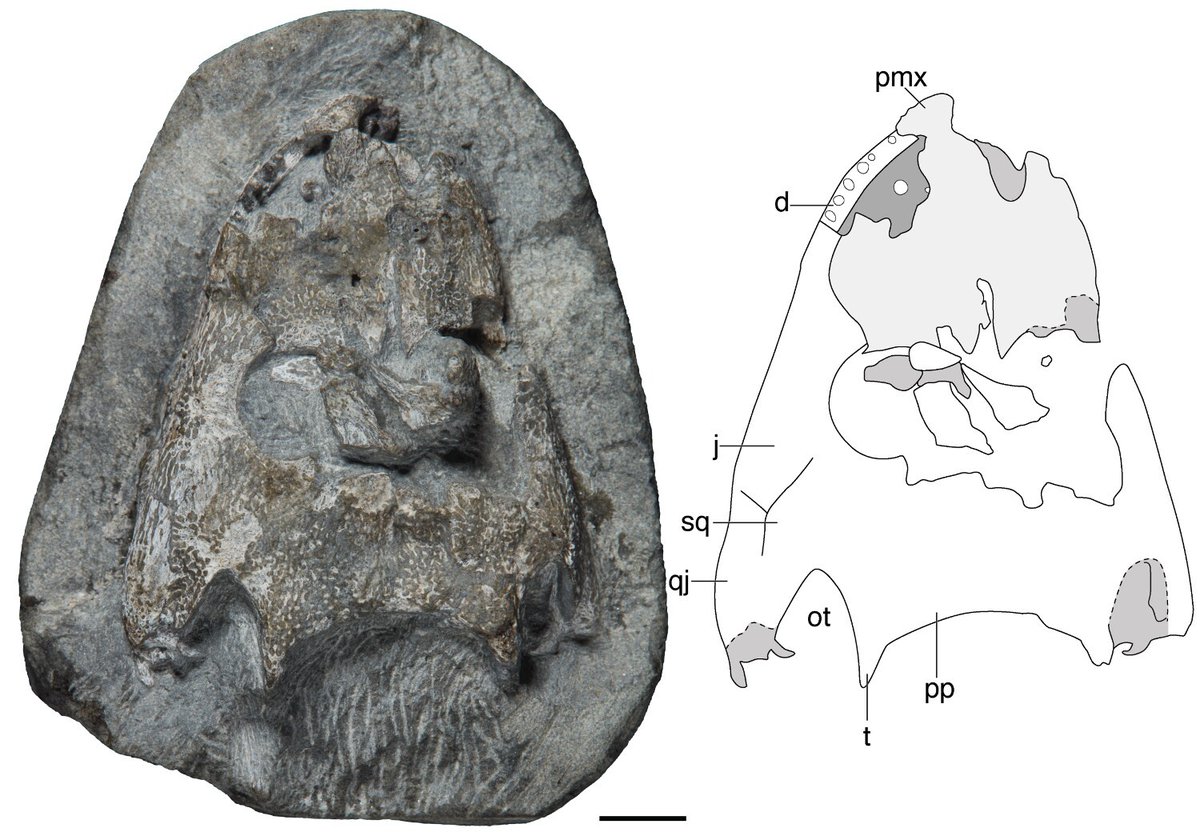
Cal So 蘇震峰
@calvincfso
Soon to be postdoc. Researcher on lissamphibian origins. BS in Zoology, Cons. Biology, and Geoscience. PhD in Biological Sciences. they/佢.🇭🇰
ID: 902269593347121152
28-08-2017 20:40:09
240 Tweet
185 Followers
338 Following
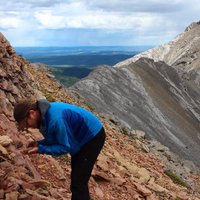
Cal So 蘇震峰 Aaron Kufner Dave Lovelace Gabriel N. U. We know these animals were abundant from bonebeds, like these Anachisma here, which show large numbers of large stereospondyls all dying at once. But...these occasional records of mass death don't tell us how these animals *survived* in between these rare mass death events 5/


Cal So 蘇震峰 Aaron Kufner Dave Lovelace Gabriel N. U. Our first hints that stereospondyls might be doing something interesting came when Fernandez and colleagues reported a specimen of the stereospondyl Broomistega sheltering in a burrow made by the cynodont Thrinaxodon. 6/
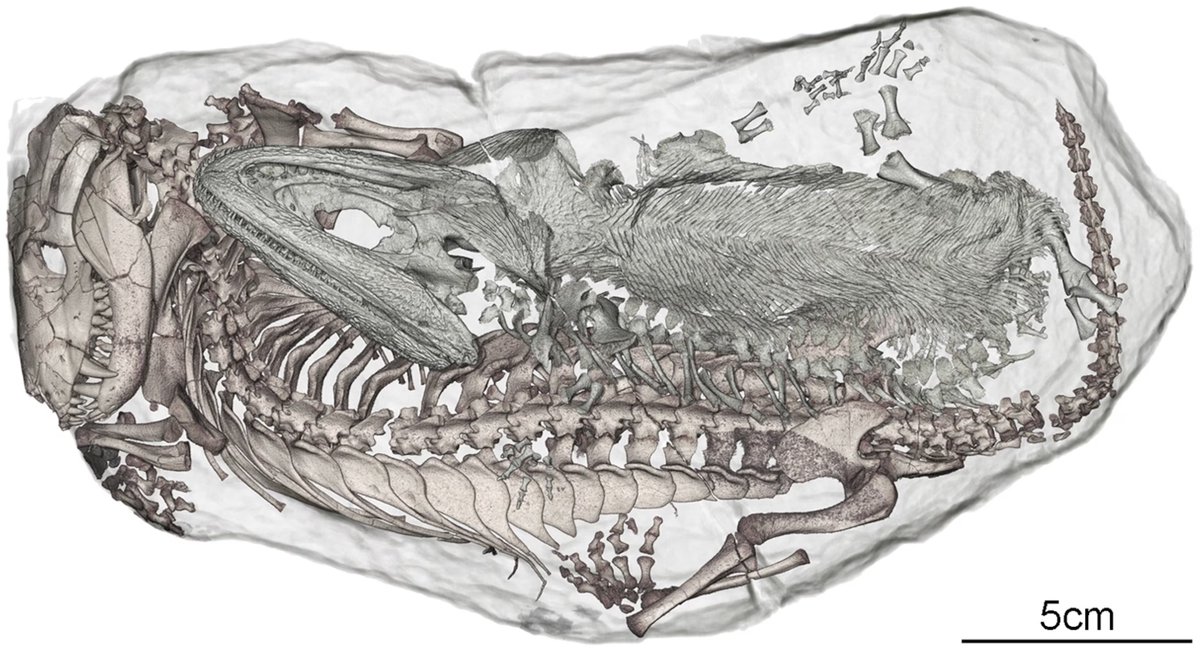

Cal So 蘇震峰 Aaron Kufner Dave Lovelace Gabriel N. U. Then in 2017, Adam Huttenlocker , Bryan Small, and I reported a strange little stereospondyl, Chinlestegophis, from extensive burrow systems in the Chinle group of Colorado. It also shows clear adaptations for burrowing, with striking similarities to modern caecilians 7/


Cal So 蘇震峰 Aaron Kufner Dave Lovelace Gabriel N. U. Adam Huttenlocker At that time, Dave Lovelace introduced Adam and I to a new small stereospondyl from the Jelm Formation of Wyoming (pic by Aaron Kufner). It showed some of the same burrowing adaptations (small lateral eyes, pointed snout, small body size), but definitely a new animal. 8/
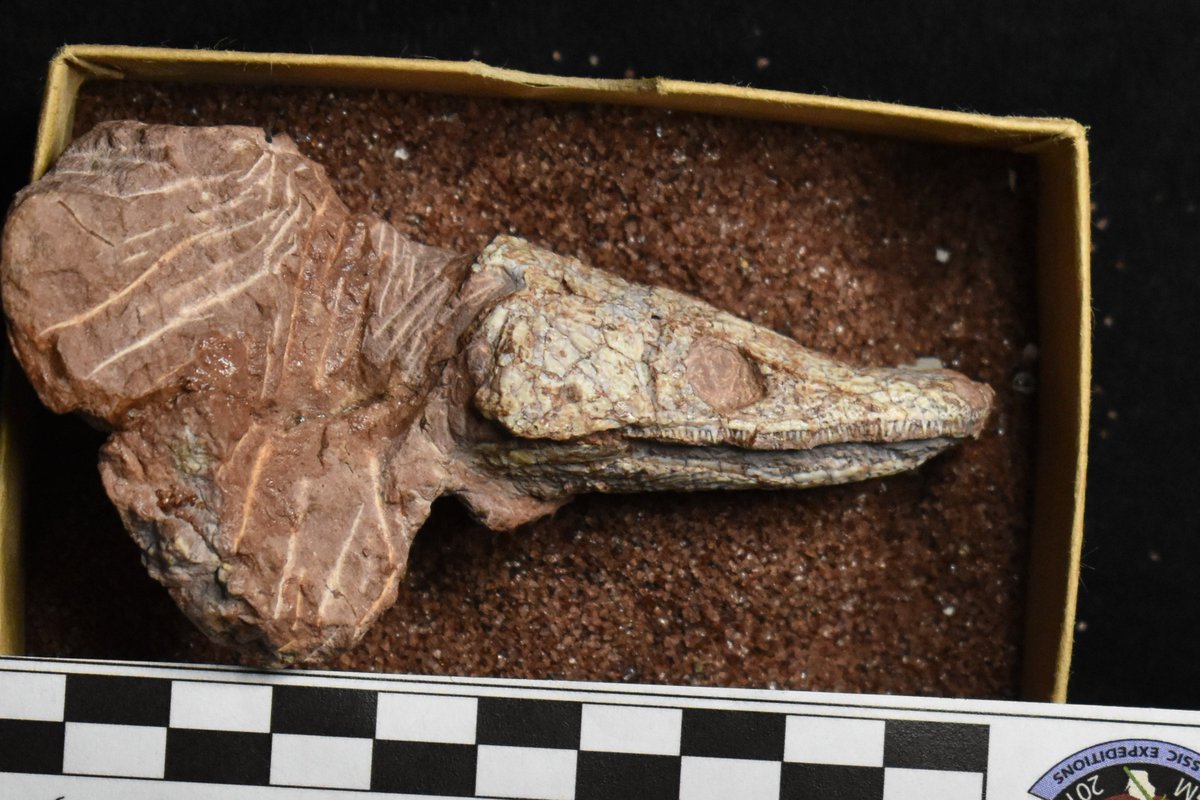

Cal So 蘇震峰 Aaron Kufner Dave Lovelace Gabriel N. U. Adam Huttenlocker But the Jelm animal is really special because of the preservational context: it is found almost exclusively in dense estivation burrows. Entire horizons just full of burrows. This is how they survived severe seasonal droughts. 9/
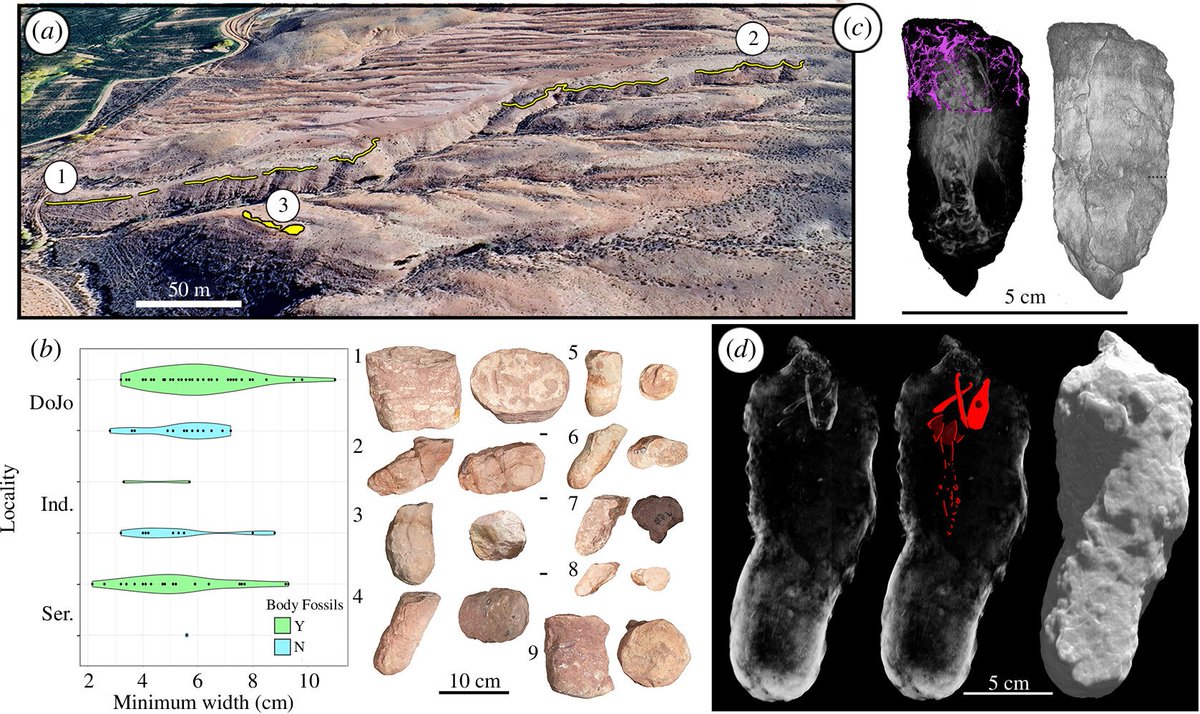

Cal So 蘇震峰 Aaron Kufner Dave Lovelace Gabriel N. U. Adam Huttenlocker Our lead author (and incoming Field Museum postdoc) Cal So 蘇震峰 led the effort to describe this material, neutron scanning a bunch of these fossils which show a suite of both primitive stereospondyl and derived Chinlestegophis-like anatomy 10/
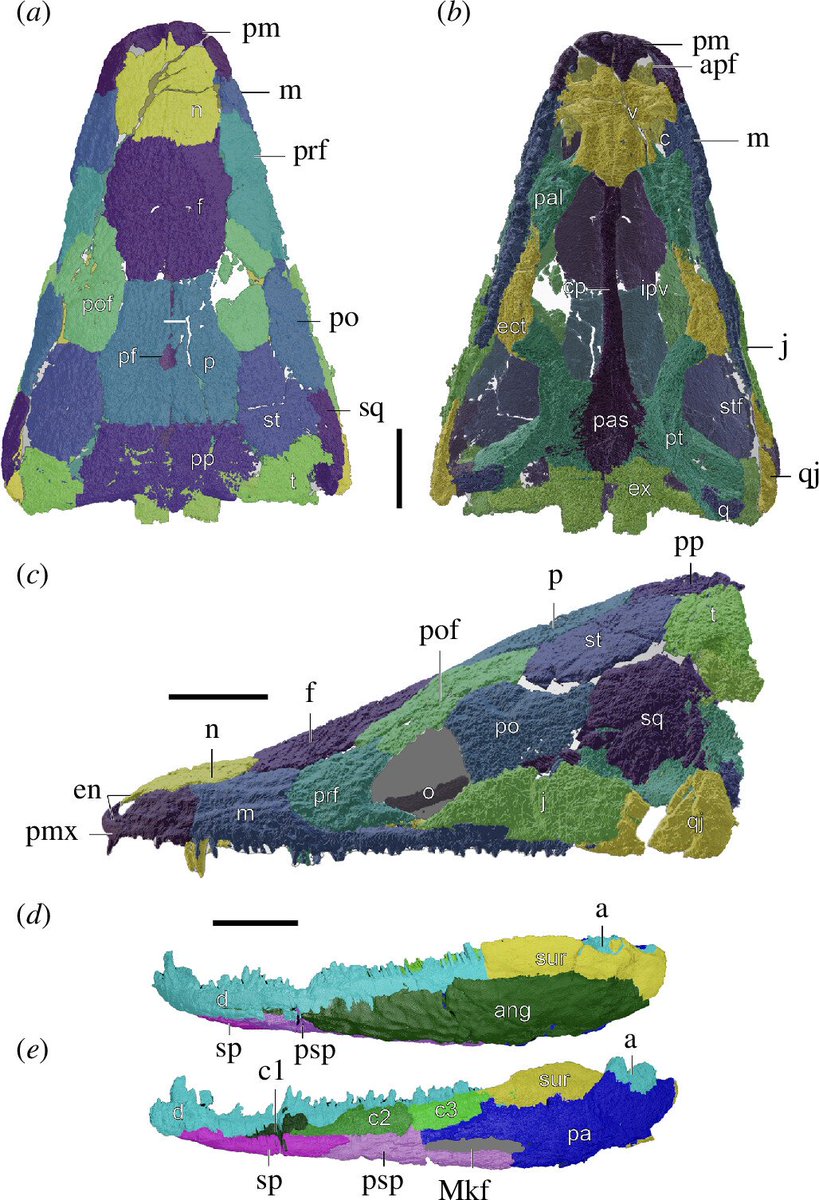

Cal So 蘇震峰 Aaron Kufner Dave Lovelace Gabriel N. U. Adam Huttenlocker Field Museum This is also the first step of our team's collaboration with the Eastern Shoshone of the Wind River, on whose ancestral land these fossils were discovered. The name Ninumbeehan dookoodukah was chosen as part of a multigenerational collaboration with the Eastern Shoshone. 11/

Cal So 蘇震峰 Aaron Kufner Dave Lovelace Gabriel N. U. Adam Huttenlocker Field Museum Was Ninumbeehan unique in its burrowing or is it part of a larger trend? We're not sure. Burrowing is not extensively recorded among total-group amphibians but we also just have not looked that hard. But we expect to see more records of temnospondyl estivation 12/
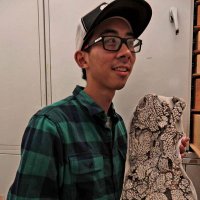
I first saw some of these specimens in 2018 when I was visiting UW to look at their metoposaurid bonebed material (CC Aaron Kufner) and have been out to the site as well. It's really exciting to see the growing body of small Late Tr temnos in N. America #MoreThanMetoposaurids


Cal So 蘇震峰 Aaron Kufner Dave Lovelace Gabriel N. U. Adam Huttenlocker Field Museum If so, this might explain why temnospondyls did so well in the Triassic, especially as part of the End-Permian Mass Extinction's recovery fauna (along with other documented estivators, such as lungfishes). Watch this space! 13/fin
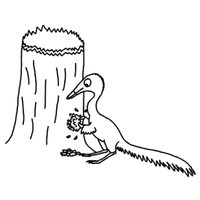
#2024SVP Cal So 蘇震峰: A new slender, long-bodied amphibamiform temnospondyl

#2024SVP Cal So 蘇震峰: New taxon is from Mazon Creek. Has a large number of presacral vertebrae, known from an adult specimen.

#2024SVP Cal So 蘇震峰: Recovered as a stem-caecilian when presacral vertebra count was included as a character. Outside of (but closely related to) lissamphibians when this character is excluded.

#2024SVP Cal So 蘇震峰: Morphometric analysis indicates body proportions similar to some modern (especially terrestrial) salamanders.
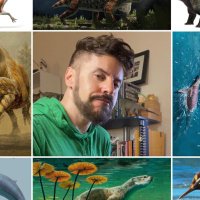


Here is another great thread by Incisoria Vicentina one of the authors of the paper

Incisoria Vicentina Thank you very much to Cal So 蘇震峰 Dave Lovelace and all other authors from commissioning me to illustrate this amazing taxon and congratulations on a great paper!
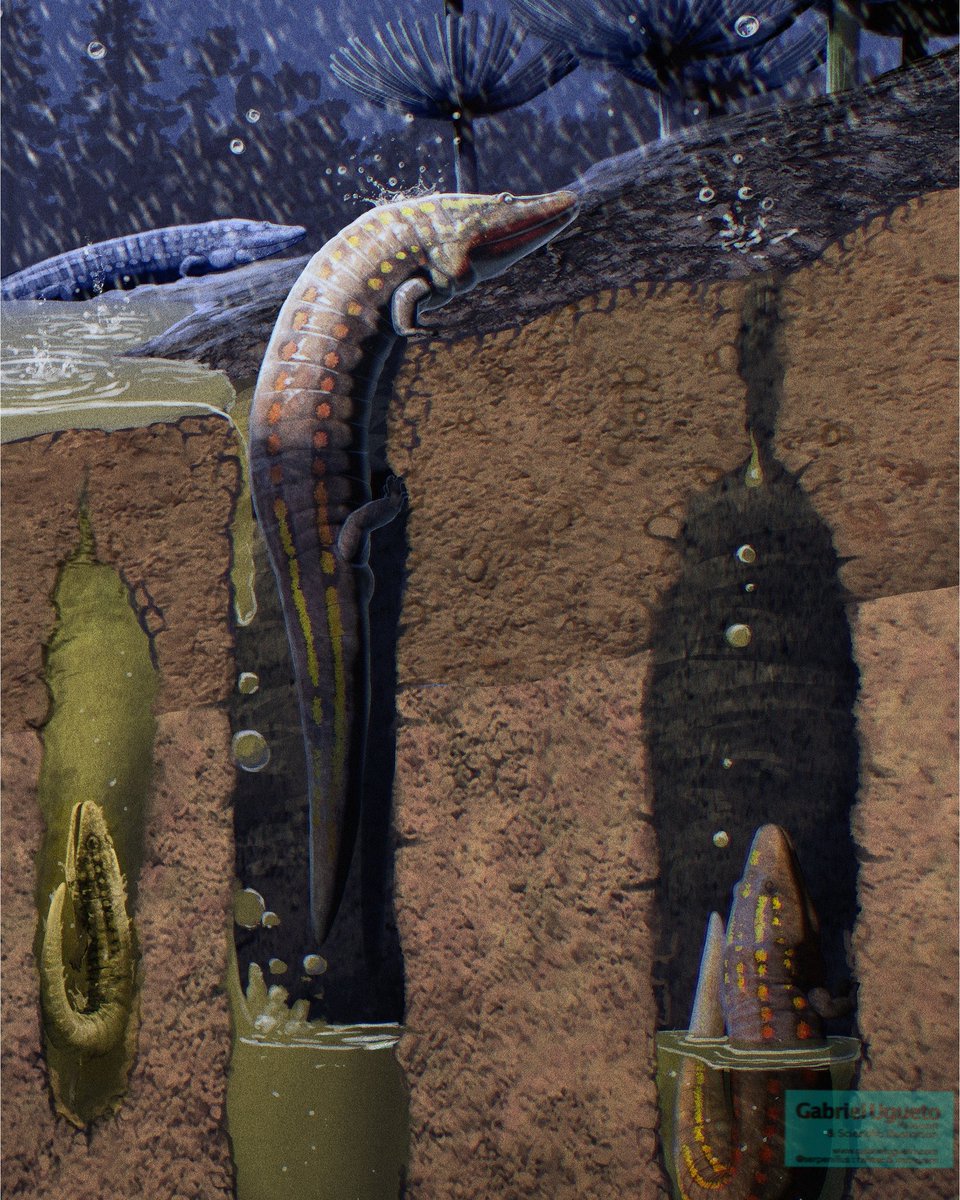

The last paper from my postdoc with Christian A. Sidor (and the 40th of my career!) is out today in Journal of Vertebrate Paleontology where we describe a slew/mess of small Antarctic #temnospondyls from the lower+middle Fremouw Fm (Early Triassic) 📰: doi.org/10.1080/027246… #temnovember 🧵👇 (1/6)
